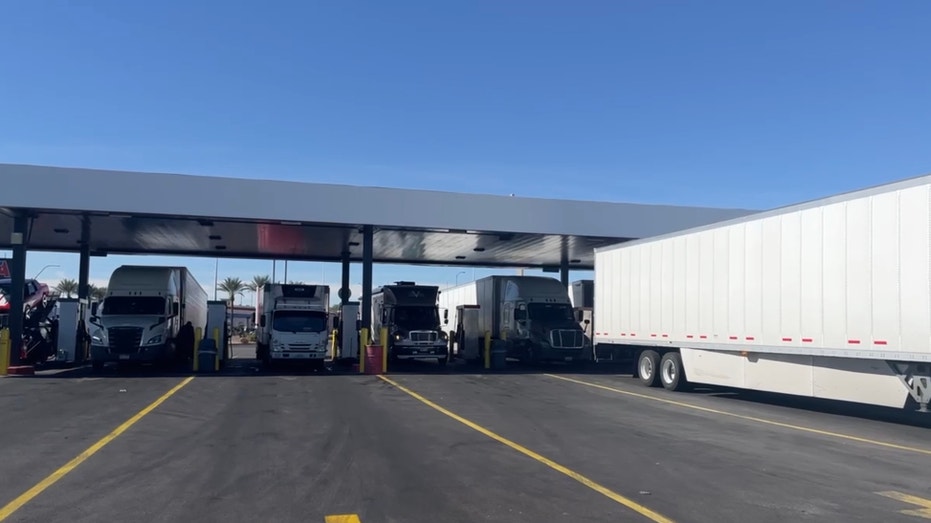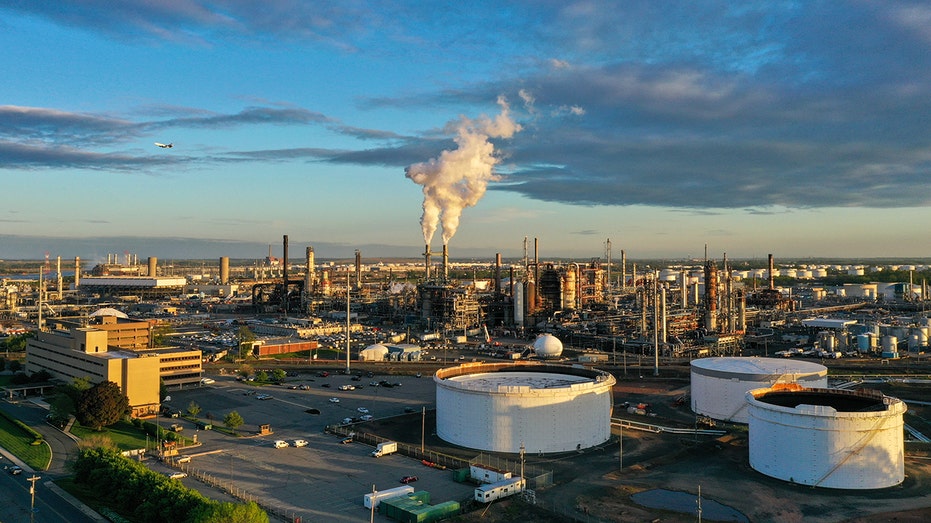Diesel price increase affects trucking industry
Industry also seeing shortage of truckers, which could contribute to higher prices at stores for customers
Diesel price increase affects trucking industry
Truckers and trucking companies across the country have been dealing with the rising prices of diesel since this summer
Nationwide, truckers and trucking companies have been dealing with the rising prices of diesel since this summer. They say they are seeing no sign of these prices coming down.
Chris Shelton is a driver for Lightning Logistics. He says his company added an extra charge for fuel that lowered his expenses, and it is the only thing keeping food on his family's table.
"It makes it harder and harder to budget yourself out each week," Shelton said.
Adam Wright owns Lightning Logistics and says he’s doing what he can to keep his drivers afloat.
DIESEL HITS RECORD PREMIUM OVER GAS, OIL
"We had to go to our customers and we had to say, ‘Look, this is a unique environment.' Fuel is through the roof now, so we had to go to our customers and put a fuel surcharge in place" Wright said.
And drivers like Shelton say this fuel surcharge saved his finances.

Diesel-powered trucks stop to refuel in Las Vegas. (Fox News Digital/Jon Michael Raasch / Fox News)
"Without a fuel surcharge, none of us would have been able to operate" Shelton said.
According to AAA, one year ago a gallon of diesel fuel was $3.65, on average. Now, it is up to $5.33. Shelton says the high prices coupled with a trucker shortage are hurting the whole industry.
OIL MARKET FACES ‘CONSIDERABLE UNCERTAINTIES,’ OPEC WARNS
"Mid and post-corona[virus], when trucking was at such an influx, a lot of my fellow drivers left to get what we call ‘real jobs’ or to go out on their own and [be] independent," Shelton said.
Wright also pointed to the shortage of drivers as affecting the trucking industry.

A few big-rig trucks are parked on nearby streets as thousands of people participate at the Los Angeles "Defeat the Mandate" rally outside Los Angeles City Hall, April 10, 2022, to protest vaccination mandates designed to slow the spread of COVID-19. (AP Photo/Damian Dovarganes / AP Newsroom)
"There’s a shortage of truckers and there’s a lot of stuff that needs to move. So, it’s a supply-demand issue" Wright said.
They say that the supply and demand issue could become a supply chain issue. Meanwhile, the U.S. Energy Information Agency, which monitors diesel inventory, says October saw the lowest fuel supply since 2008.
US DRILLERS ADD OIL AND GAS RIGS FOR SECOND WEEK IN A ROW: BAKER HUGHES
If diesel prices continue to rise and companies cannot get more drivers on the road, that would ultimately result in higher prices at stores, Shelton said.

An aerial view of Phillips 66 oil refinery in Linden, New Jersey, on May 11, 2022. (Tayfun Coskun/Anadolu Agency via Getty Images / Getty Images)
CLICK HERE TO GET THE FOX BUSINESS APP
"It starts with me as a fuel surcharge just to pick something up and take it somewhere. Well, then the person I’m taking it to has to raise their prices to sell it. And the person they’re taking it to, because I don’t take it to a grocery store, I take it to a distributor. Everybody’s got to go up a little. And of course, then it goes back around to me when I go somewhere to buy something" Shelton said.





















